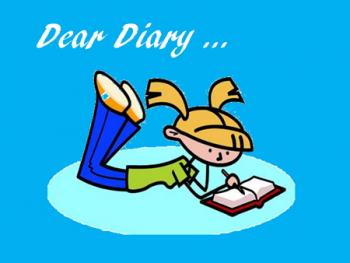
It is helpful after time has gone by to reflect on the process gone through in arriving at the final form of a book. Take for example, my book, The Osprey Enigma. This is a story about a twelve year old girl, Beverley Miller, and the adventures which follow from tracking an osprey on its winter journey to Africa. At first, I started to write this story in the form of a diary. Here are the first few paragraphs of the original opening chapter to the novel:
November 5th – Joining the dots
I’ve got an amazing secret. It’s difficult to explain. In fact if I just told you straight off you would wonder what I was on about. But trust me, this is defo brill.
I was going to talk to someone about it, but I thought people might just laugh. Even if they did take it seriously, it wouldn’t be my secret anymore. So I thought I would just write it down for now. And anyway, I’m thinking, what if I’m wrong? What if I’m just seeing things?
And if I’m right, what am I supposed to do next?
I’m not sure if I will write anymore after tonight. This might just be a one off. It depends what happens. I might just bin this if nothing comes of it. So, basically, if you’re reading this, it must have turned out to be important.
Writing a story as a diary is not unusual. A good example is the excellent book, The Amazing Story of Adolphus Tips, by Michael Morpurgo. A diary has a raw immediacy and the reader can readily identify with the protagonist, not least because the diarist has no more idea of what will happen than the reader. It really is a, potentially exciting, journey into the unknown. Of course, the reader will assume that the diary will develop into a story worth telling, otherwise, Why would the diarist have chosen to 'publish' the story? In the above extract this is implied in the last sentence: 'So, basically, if you’re reading this, it must have turned out to be important'. But there are also disadvantages to the diary format.
That the diarist has no idea of where the `story’ is going will almost certainly lead to the diary in its raw form not reading like a story at all. In Morpurgo’s book the diary is prefixed by a covering letter which states that the diary has been edited to remove material which is too personal, uninteresting or too lengthy. The reader of a novel in a diary format has to accept that some of the rawness and immediacy will be compromised so that the diary seems more polished than would be expected. This was one reason which made me think that perhaps the diary format was not suitable for my story. Another reason was the age of the protagonist.
If Beverley was twelve years old when the events covered in the story occurred then a diary format would require me to write the story as a twelve-year-old. So in the first sentence the secret is potentially defo brill and the final sentence has the word basically. But it is not just the vocabulary, the story has to be written from the outlook of a twelve-year-old. There is nothing wrong with this in itself, but it does prevent more mature perspectives from being incorporated into the text.
In the end I decided to abandon the diary format for this particular story. I kept the story in the first person, but had Beverley tell her story as a twenty-four-year-old. On the plus side I felt I was able to tell the story without, as I saw it, a contrived format, and I was able to write as an adult, albeit for children. Perhaps I did lose some of the immediacy of the diary format, but one thing that remained was the central importance of the 'amazing secret' …


